
Curved surface area, total surface area and volume of cylinder.
- Subject:
- Mathematics
- Material Type:
- Primary Source
- Author:
- K S Gireesh & Suchetha S S
- Date Added:
- 01/06/2020

Curved surface area, total surface area and volume of cylinder.
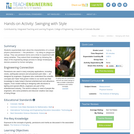
Students experientially learn about the characteristics of a simple physics phenomenon the pendulum by riding on playground swings. They use pendulum terms and a timer to experiment with swing variables. They extend their knowledge by following the steps of the engineering design process to design timekeeping devices powered by human swinging.
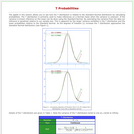
The applet in this section allows you to see how the T distribution is related to the Standard Normal distribution by calculating probabilities. The T distribution is primarily used to make inferences on a Normal mean when the variance is unknown.
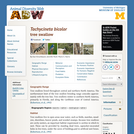
Tachycineta bicolor: Information

List of tags/keywords mandatory to place your resource in collections showed on the front page on the Nordic University Health Hub
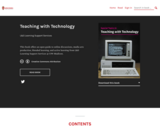
Short Description:
This book offers an open guide to online discussions, media arts production, blended learning, and active learning from L&S Learning Support Services @ UW-Madison.
Long Description:
This book offers an open guide to online discussions, media arts production, blended learning, and active learning from L&S Learning Support Services @ UW-Madison. It was first published in 2015 to accompany an online professional development course provided by LSS.
Word Count: 35588
(Note: This resource's metadata has been created automatically by reformatting and/or combining the information that the author initially provided as part of a bulk import process.)
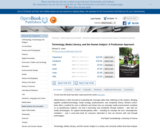
What does it mean to be media literate in today’s world? How are we transformed by the many media infrastructures around us? We are immersed in a world mediated by information and communication technologies (ICTs). From hardware like smartphones, smartwatches, and home assistants to software like Facebook, Instagram, Twitter, and Snapchat, our lives have become a complex, interconnected network of relations. Scholarship on media literacy has tended to focus on developing the skills to access, analyze, evaluate, and create media messages without considering or weighing the impact of the technological medium—how it enables and constrains both messages and media users. Additionally, there is often little attention paid to the broader context of interrelations which affect our engagement with media technologies.
This book addresses these issues by providing a transdisciplinary method that allows for both practical and theoretical analyses of media investigations. Informed by postphenomenology, media ecology, philosophical posthumanism, and complexity theory the author proposes both a framework and a pragmatic instrument for understanding the multiplicity of relations that all contribute to how we affect—and are affected by—our relations with media technology. The author argues persuasively that the increased awareness provided by this posthuman approach affords us a greater chance for reclaiming some of our agency and provides a sound foundation upon which we can then judge our media relations. This book will be an indispensable tool for educators in media literacy and media studies, as well as academics in philosophy of technology, media and communication studies, and the post-humanities.
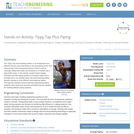
The Tippy Tap hand-washing station is an inexpensive and effective device used extensively in the developing world. One shortcoming of the homemade device is that it must be manually refilled with water and therefore is of limited use in high-traffic areas. In this activity, student teams design, prototype and test piping systems to transport water from a storage tank to an existing Tippy Tap hand-washing station, thereby creating a more efficient hand-washing station. Through this example service-learning engineering project, students learn basic fluid dynamic principles that are needed for creating efficient piping systems.
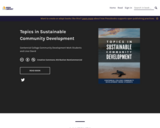
Long Description:
CREDITS:
Cover Photo by Darwis Alwan from Pexels
Word Count: 5321
(Note: This resource's metadata has been created automatically by reformatting and/or combining the information that the author initially provided as part of a bulk import process.)
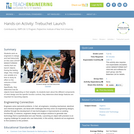
Students work as engineers to design and test trebuchets (in this case LEGO® MINDSTORMS® robots) that can launch objects. During the testing stage, they change one variable at a time to study its effect on the outcome of their designs. Specifically, they determine how far objects travel depending on their weights. As students learn about the different components of robot design and the specific function controls, they determine what design features are important for launching objects.
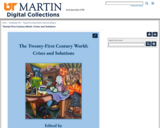
How do you teach world current events? From history textbooks? From the internet? From watching the news? The 21st Century World: Crises and Solutions, aims to remedy a scarcity of comprehensive analysis of world events. It recollects the recent past, analyzes the factors that destabilize and threaten human life, and examines sustainable and fair solutions. The chapters are organized in four parts: sustainability, demographics, literacy, and freedoms. Coverage includes the sustainability of land and water use, poverty-induced issues such as health, hunger, and homelessness, the global economy, population distribution and location, migrations and refugees, education and information and issues of violence that find outlets in oppression, protests, war, and terrorism.
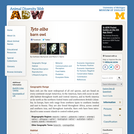
This is an information sheet on the species, Tyto alba, provided by the University of Michigan Museum of Zoology.
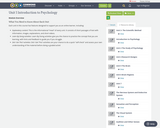
What You Need to Know About Each UnitEach unit in this course has features designed to support you as an online learner, including:Explanatory content: This is the informational “meat” of every unit. It consists of short passages of text with information, images, explanations, and short videos.Learn By Doing activities: Learn By Doing activities give you the chance to practice the concept that you are learning, with hints and feedback to guide you if you struggle.Did I Get This? activities: Did I Get This? activities are your chance to do a quick "self-check" and assess your own understanding of the material before doing a graded activit
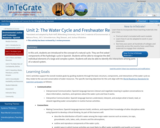
In this unit, students are introduced to the concept of a natural cycle. They are first asked to identify the different components of the hydrologic cycle in Spanish. Students will be able to recognize the delicate balance between the individual elements of a large and complex system. Students will also be able to identify the interactions among parts of a natural system.
(Note: this resource was added to OER Commons as part of a batch upload of over 2,200 records. If you notice an issue with the quality of the metadata, please let us know by using the 'report' button and we will flag it for consideration.)
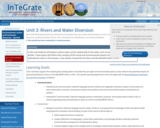
In this unit students will explore surface water and its relationship to the water cycle via watersheds and drainage divides. These topics will inform their analysis of the social and environmental impacts of the planned increase of hydroelectric dams in the Amazon. Case studies include the Ene River and the MaraÃÃn River in Peru.
(Note: this resource was added to OER Commons as part of a batch upload of over 2,200 records. If you notice an issue with the quality of the metadata, please let us know by using the 'report' button and we will flag it for consideration.)
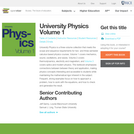
University Physics is a three-volume collection that meets the scope and sequence requirements for two- and three-semester calculus-based physics courses. Volume 1 covers mechanics, sound, oscillations, and waves. Volume 2 covers thermodynamics, electricity and magnetism, and Volume 3 covers optics and modern physics. This textbook emphasizes connections between between theory and application, making physics concepts interesting and accessible to students while maintaining the mathematical rigor inherent in the subject. Frequent, strong examples focus on how to approach a problem, how to work with the equations, and how to check and generalize the result.
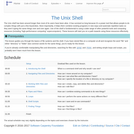
Software Carpentry lesson on how to use the shell to navigate the filesystem and write simple loops and scripts. The Unix shell has been around longer than most of its users have been alive. It has survived so long because it’s a power tool that allows people to do complex things with just a few keystrokes. More importantly, it helps them combine existing programs in new ways and automate repetitive tasks so they aren’t typing the same things over and over again. Use of the shell is fundamental to using a wide range of other powerful tools and computing resources (including “high-performance computing†supercomputers). These lessons will start you on a path towards using these resources effectively.

This video lecture describes the one of the key issues in translation I. e Untranslatability
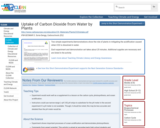
Two simple experiments/demonstrations show the role of plants in mitigating the acidification caused when CO2 is dissolved in water.
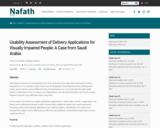
Technology has become an essential part of our lives, and many of our daily tasks have become entirely dependent on it. For example, routine chores such as shopping for household necessities, booking travel tickets, going to places using all different kinds of transportations etc., are quickly done through mobile phones. And because of how it is easy to use mobile phones, we may forget that others, such as the visually impaired, may face many difficulties when using them.
In this research two of the most widely used delivery applications in Saudi Arabia, namely, Hungerstation and Mrsool were studied and evaluated in order to assess their usability for people with visual impairments. Evaluation results show that both applications have usability problems. Nonetheless, the results of the standard ISO usability metrics (Effectiveness, Efficiency and satisfaction) showed that Hungerstation is more usable than Mrsool.